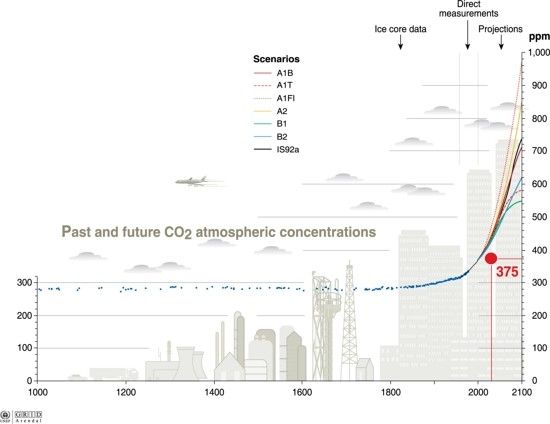Is the Scientific Community Doing a Good Job On Climate Change?
Frequent commenter James Gover, author, speaker, and professor of electrical engineering at Kettering University writes:
My suspicion is that most of the global warming experts don’t understand the full picture very well or one would step aside and write a book that clearly presented the options so we could all read and understand. The longer this debate continues, the larger the perceived ineptness and the lesser the credibility of the scientific community.
First, Dr. Gover, let me thank you for your numerous, thoughtful comments here over the years; I’m honored to have someone of such a stellar level of accomplishment on board.
Personally, I have a bit more sympathy towards the scientific community when in comes to climate change. Maybe I’m being too easy on them, but this phenomenon appears monstrously complex. As one of many examples, the feedback loops that we encounter going forward can (and probably will) be both positive and negative – i.e., both vicious and virtuous cycles.
And it’s not as if we have anything historical on which to rely; it’s (obviously) unprecedented in the annals of humankind.
From what I’ve read, no one knows exactly what 500 or 1000 PPM CO2 will mean. What we do know is that we’d do very well not to find out.
http://www.grida.no/graphicslib/detail/past-and-future-co2-concentrations_a92d#



Right; the risks associated with global warming are unacceptable and we don’t know exactly what the consequences will be.
Although the UK is far north, it has a climate warm enough for living and growing crops because of the gulf stream. If global warming halted the gulf stream, the UK could actually become colder. If it did not halt the gulf stream, the UK would become warmer.
The south pole is much colder than the north pole because of the influence of ocean currents, and our knowledge of what drives ocean currents is very limited. We do not know how ocean currents may be affected by climate change.
One thing of which we can be reasonably sure is that ocean levels would rise causing permanent flooding in low lying costal regions which would force people out of their homes.
Probably climate change would result in millions or billions of climate refugees which our political systems could not accommodate. If the world were more civilized, we’d be better able to handle the refugee problem in a humane manner, but I don’t believe that we are that civilized.